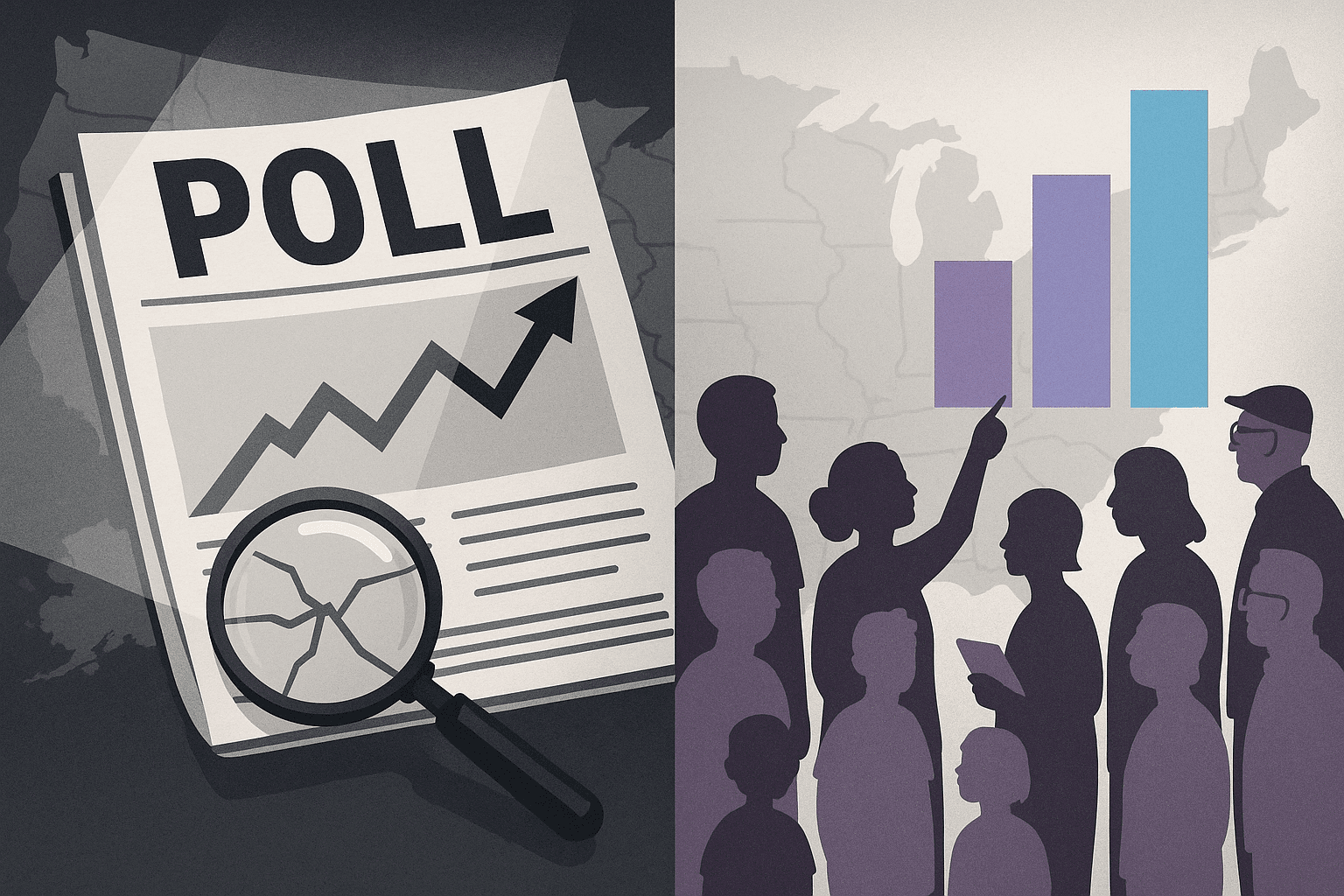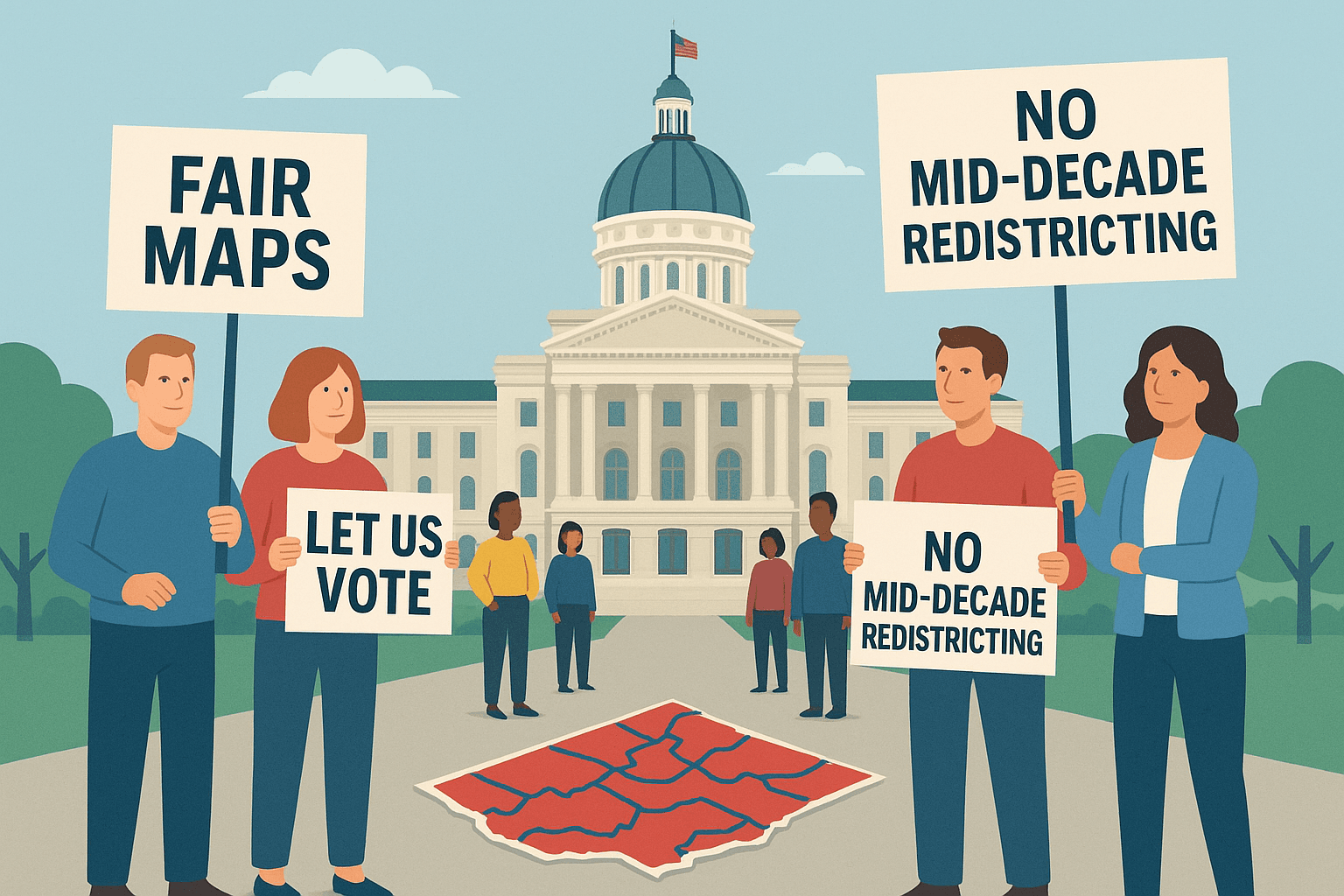Pew: Only 4% of Americans Think US Political System Is Working 'Very Well'

It may come as no surprise to hear that most Americans are dissatisfied with the US political system, the political parties, and elected officials. However, today, Pew Research has found that these views are “unrelentingly negative, with little hope of improvement on the horizon.”
US voters in greater numbers than ever before do not trust the political process. In fact, according to a comprehensive study from Pew, “just 4% of U.S. adults say the political system is working extremely or very well.”
Nearly two-thirds (63%) of survey takers expressed little to no confidence in the future of the US political process.
Pew’s findings come at a time when Congress jumped immediately from a shutdown threat to no longer having a Speaker of the House. At the time of this writing, it has been 13 days since the House voted to vacate the Speaker’s position and a new one hasn’t been elected.
Imagine what survey takers would say now.
The American people are constantly inundated by divisive rhetoric and hyper-partisan warfare between the Republican and Democratic Parties – which has become more important to elected officials than finding solutions to the nation’s biggest problems.
In fact, 86% of US adults agreed that the following statement was a good description of American politics: “Republicans and Democrats are more focused on fighting each other than on solving problems.”
Further, 57% of the people surveyed “believe that conflicts between Republicans and Democrats receive too much attention these days.” Nearly 80% said not enough attention is focused on important issues.
When asked to describe the US political system in their own words, “Divisive” and “Corrupt” were the two words most frequently used as 65% of Americans “always or often feel exhausted when thinking about politics, while 55% feel angry.”
But it doesn’t end there:
- Only 2% had positive terms to describe the US political process.
- Only 9% could point to “freedoms and democratic values” as a strength of the US political system. Most respondents were unable or willing to identify any strong points in the system.
- Only 16% say they trust the federal government “always or most of the time.”
- Only 26% view the quality of candidates in US elections as somewhat or very good. According to Pew, this number dropped about 20 percentage points since 2018.
Yet, despite voters’ negative outlook, Pew recognizes that 2018, 2020, and 2022 “were three of the highest-turnout U.S. elections of their respective types in decades.” While political pundits like to talk about voter apathy, this shows how deeply voters desire change.
Not “change” in the way public officials promise on the campaign trail – but change to how candidates are elected in the first place.
The 2018 midterm was the biggest year in electoral reform in half-a-century. Voters in Maine, Michigan, Colorado, Utah, Missouri, and several other places across the country voted on electoral and systemic reforms to foster a better political system.
Each election cycle since has seen more historic victories for reform – most of which were approved by voters at the ballot box. There is no question that 2024 will offer up more options for voters to change how they elect public officials.
Pew also found that a majority of US adults favor reforms like term limits and automatic voter registration, but these are low-hanging fruit when it comes to desired reforms. Imagine if Pew asked voters about alternative voting methods, open primaries, gerrymandering reform, etc.
Take it further: Imagine if Pew asked US adults if they would show up to vote on these type of nonpartisan systemic reforms – like they have in California, Maine, Alaska, Nevada, and elsewhere.
Give voters a reason to vote and they will. Right now, that reason is they desperately want a less divisive, healthier, and more accountable political process.
 Shawn Griffiths
Shawn Griffiths






